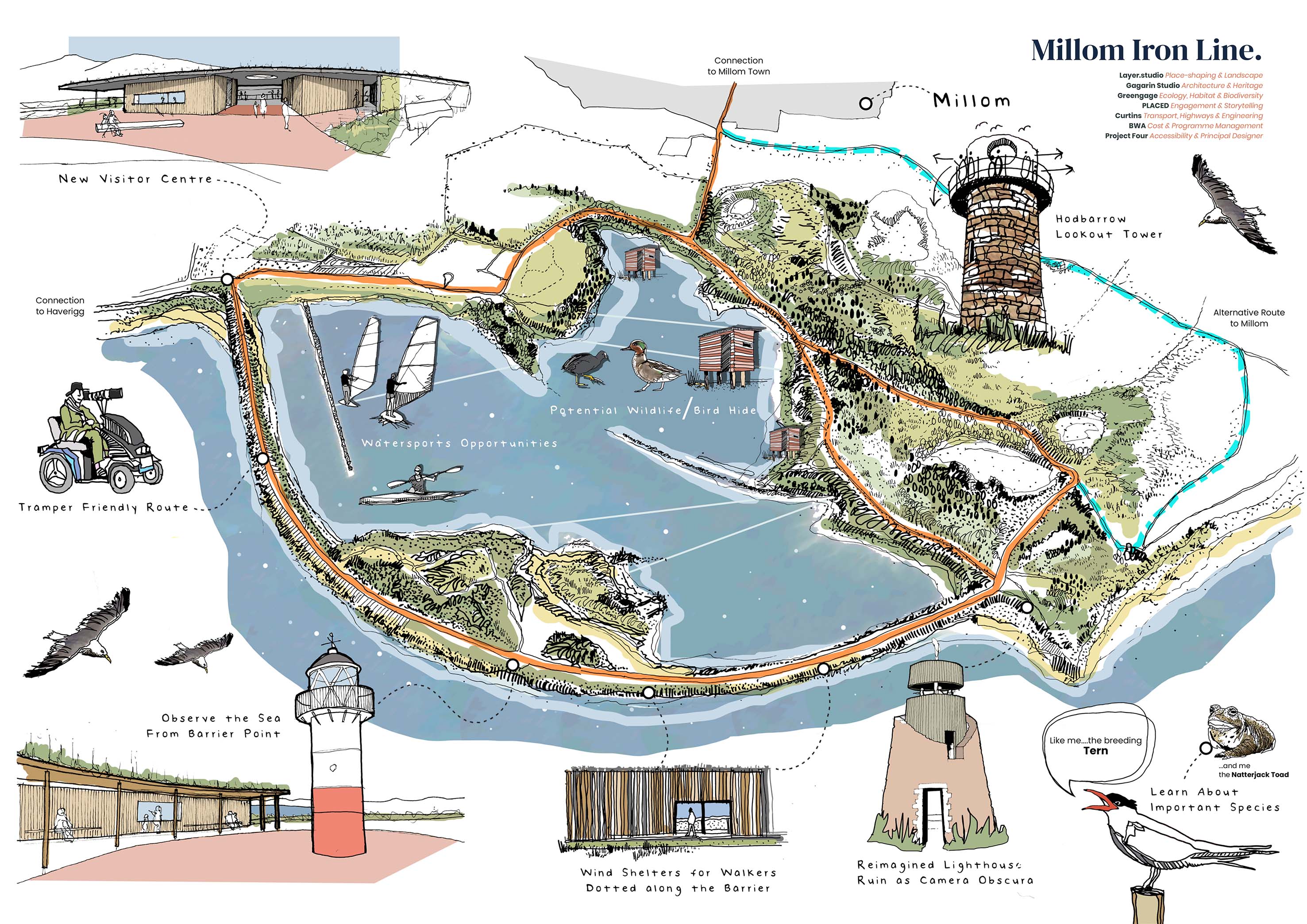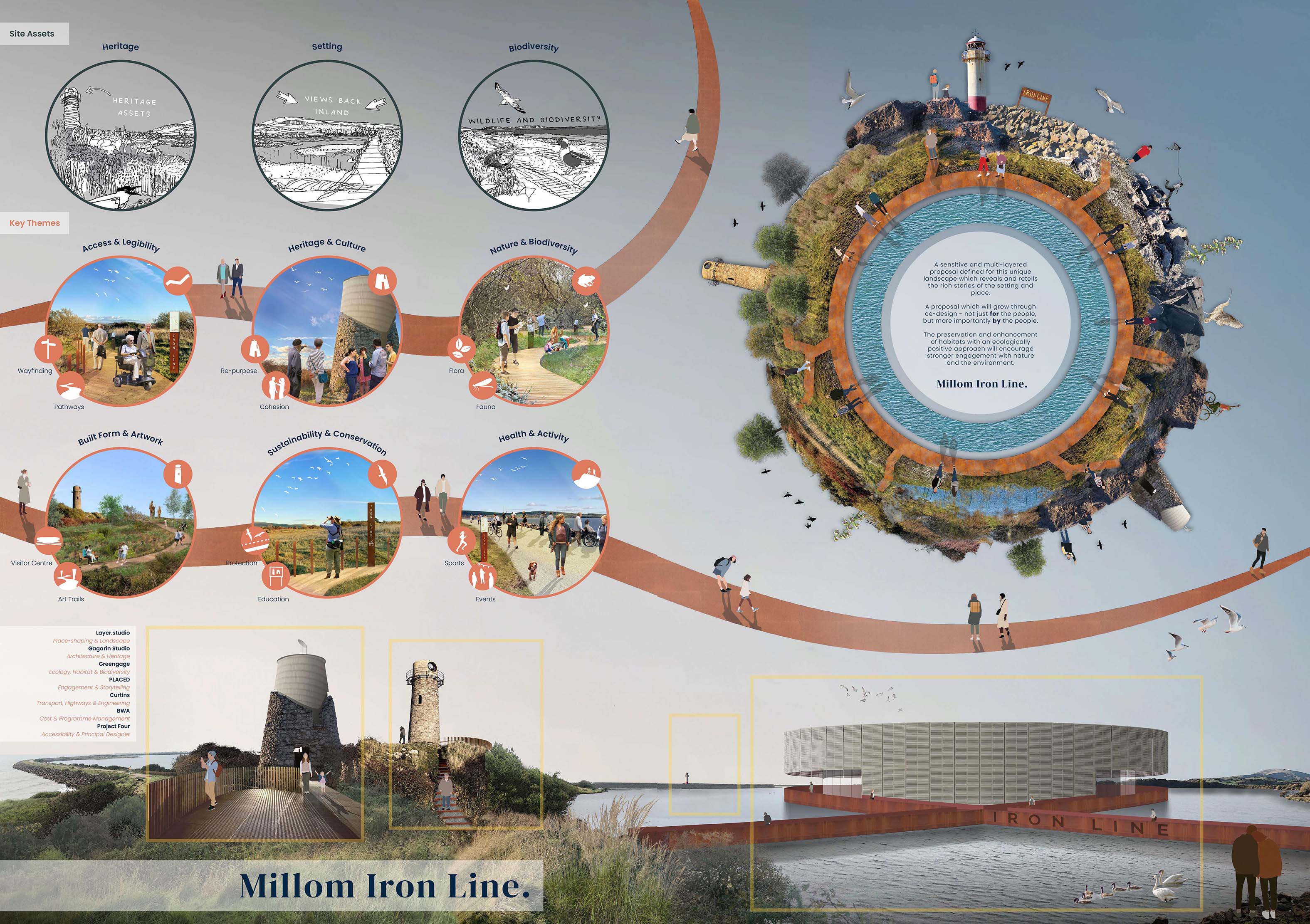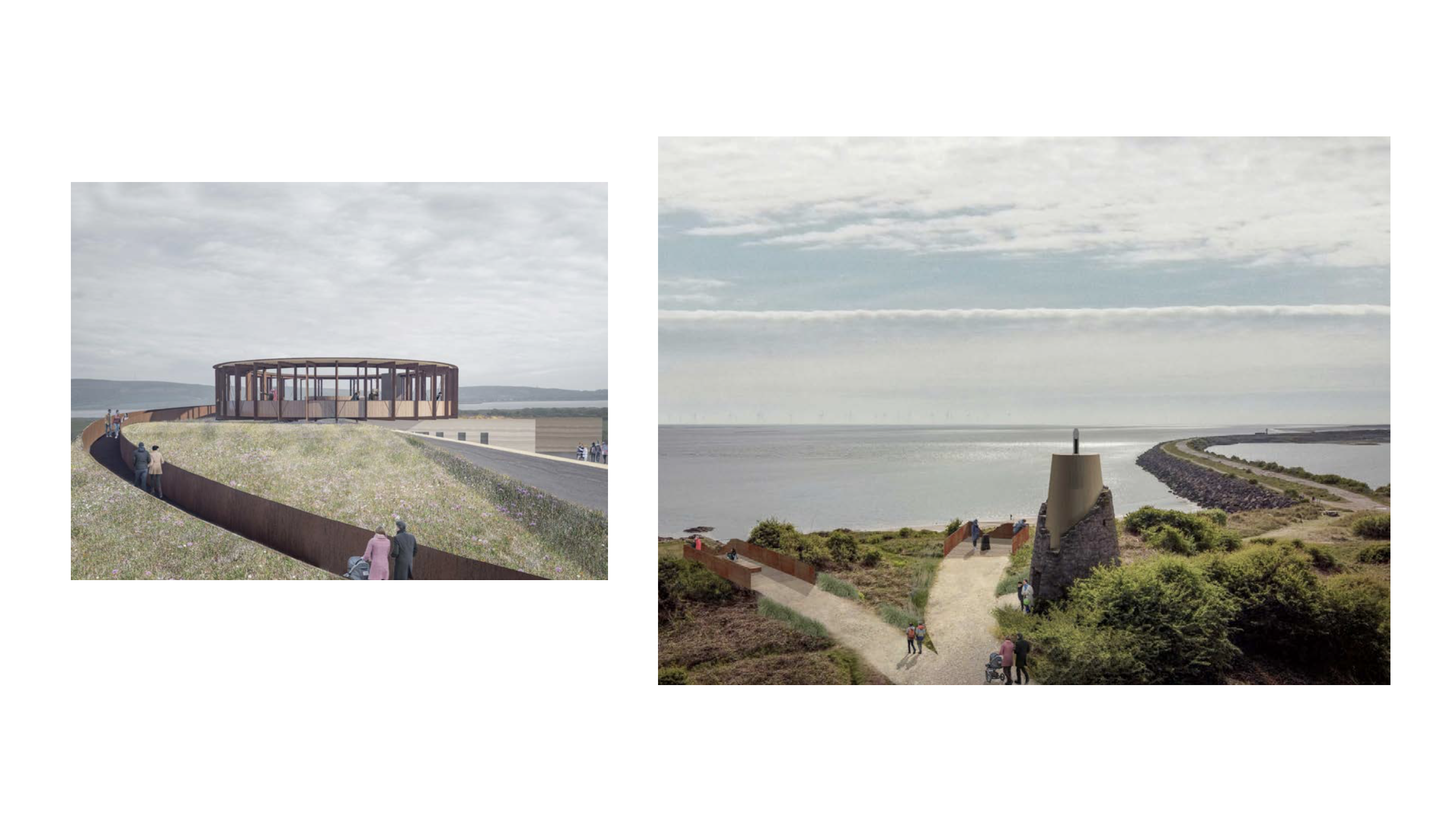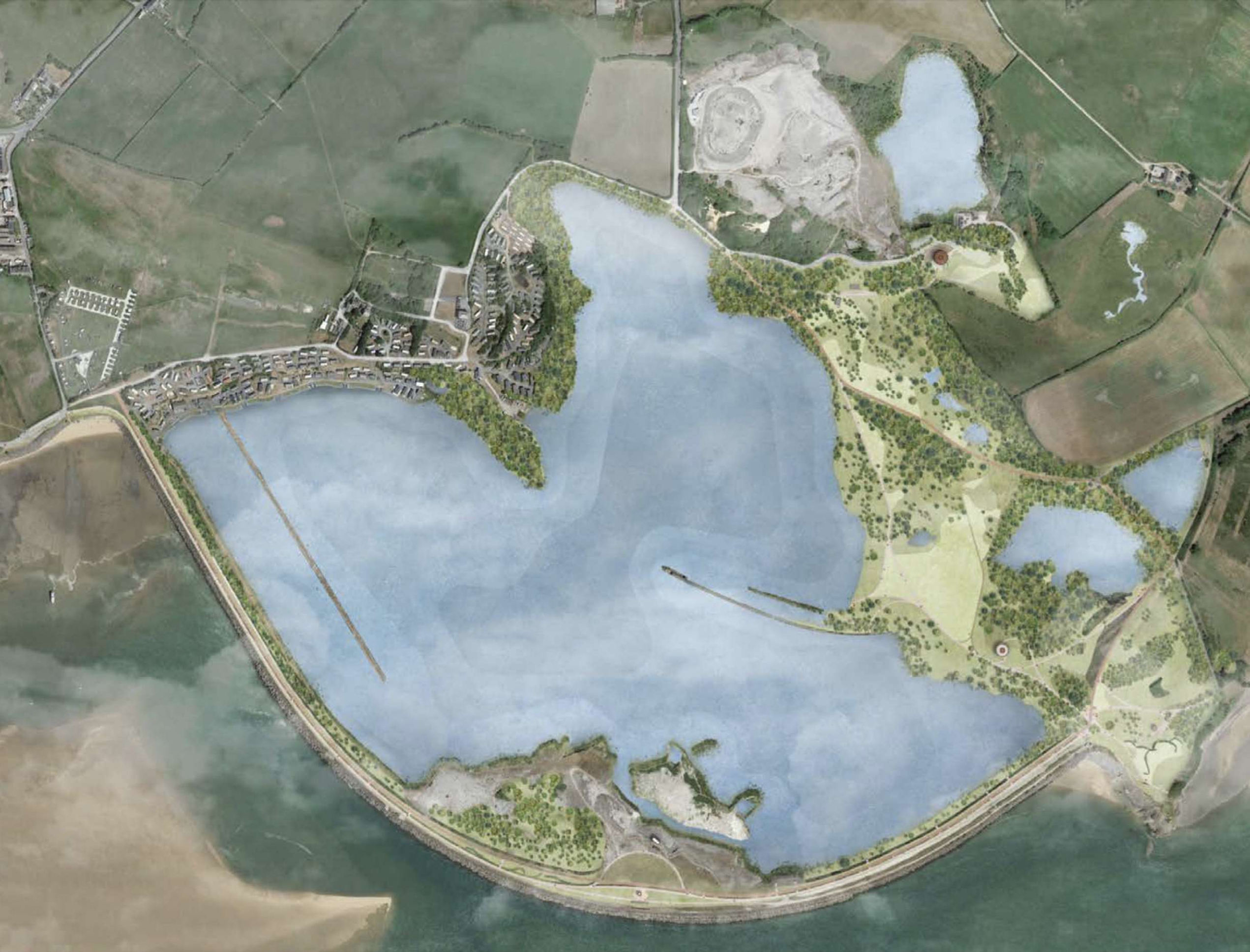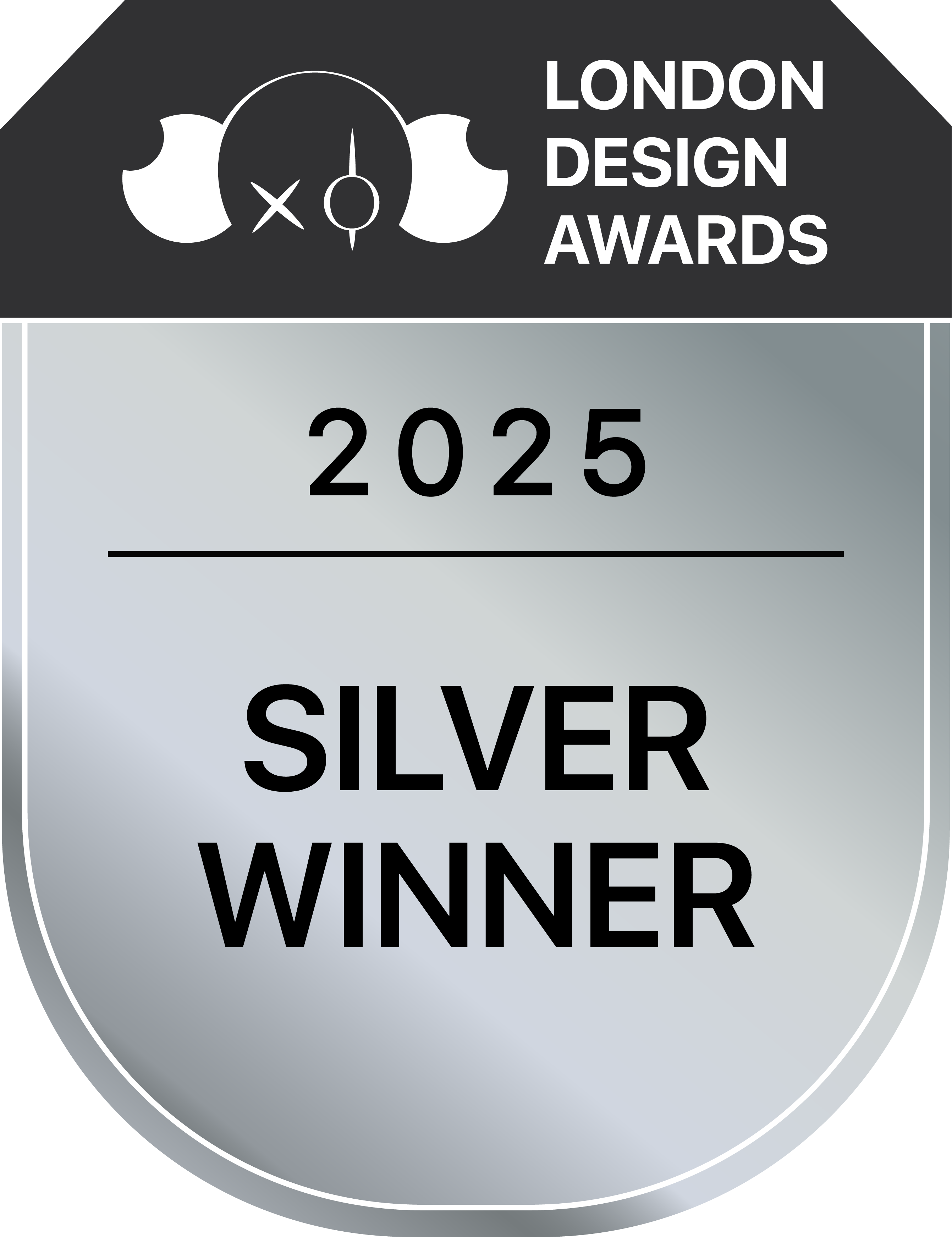
2025
The Iron Line, Millom
Entrant Company
Layer.studio
Category
Landscape Design - Industrial Landscape
Client's Name
Cumberland Council
Country / Region
United Kingdom
The Iron Line follows a four-mile circular route around a coastal lagoon, formed out of a flooded iron mine.
When completed, the Iron Line will provide more than 74 acres of improved green spaces and outdoor areas, as well as 37 acres of rehabilitated land.
Bringing new life to one of Cumbria’s best ecological assets through the creation of a regionally significant visitor attraction, the Iron Line, as one of four regeneration projects in Millom will bring a new welcome building, enhanced path network and landmarks for people to explore. With a landscape shaped from iron extraction that's been left to naturalise, the site has evolved into a ecologically abundant wildlife haven. For the Iron Line project, this presents huge opportunity for a heritage and biodiversity narrative but also makes for a development challenge because of the ecological designations that RSPB Hodbarrow and the Duddon Estuary are afforded.
After successfully winning an international design competition, Layer.studio were appointed by Cumberland Council as lead consultant for the design team for RIBA Stages 1-3. Workin alongside the Council, RSPB and other stakeholders to develop a proposal that will attract visitors, remain true to its locality and respects the sensitive ecological setting.
Stage 2 and 3 design progressed in parallel with a programme of community engagement that promoted co-design with local people.
Education and Interpretation The welcome building will feature exhibitions and informational resources, allowing visitors to engage with the site’s biodiversity, heritage, and landscape. Interpretation signage throughout the reserve will highlight key features and the significance of often unseen ecological elements.
Footpaths - A strategic path network will:
• Upgrade surfaces for inclusive access and clear route visibility.
• Keep pedestrians on designated trails, preventing habitat disruption.
• Formalise desire lines with sensitive materials and fencing.
• Restore habitat by closing unauthorised paths.
• Mark and promote approved walking trails in visitor literature.
Habitat Creation Improved footpath corridors will reclaim land for ecological restoration where trails have expanded unnecessarily.
Credits
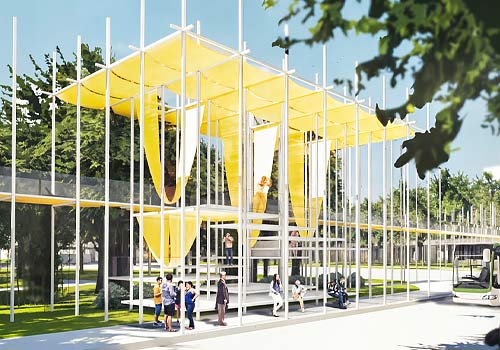
Entrant Company
Personal Project
Category
Architectural Design - Infrastructure


Entrant Company
Ian Design Studio
Category
Interior Design - Residential


Entrant Company
Politecnico di MILANO
Category
Architectural Design - Disaster Relief Architecture

